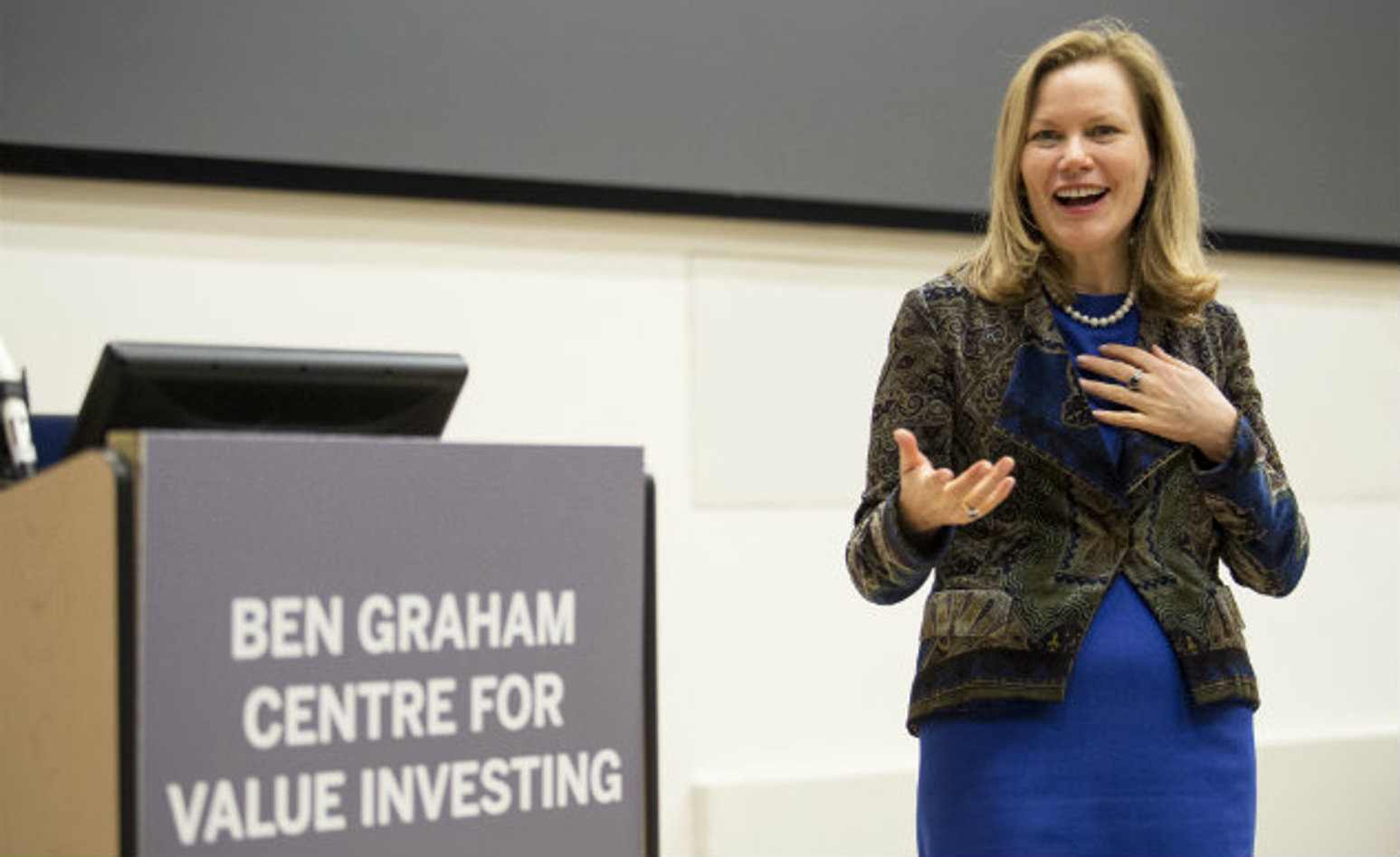The best investment advice Kim Shannon can give is actually some of the oldest advice.
She shares 500-year-old investment advice from a German banker called Jacob Fugger the Rich: Keep one-quarter each in stocks, bonds, real estate, and gold coins (the currency of the day). Or, as Shannon interprets: figure out your ideal asset mix and stick with it.
Shannon, President and Chief Investment Officer of Sionna Investment Managers in Toronto, spoke with students in Ivey Professor George Athanassakos’ value investing class on March 4 about why that advice is important and how her company applies it.
She explained when differences in stock performance cause an imbalance between those four parts, it’s time to rebalance so you are back to four equal parts. That means selling your asset mix winners and buying more of your asset mix losers.
“From a psychological perspective, that’s not easy to do, to sell what has been making you money and buy what has been causing you pain,” she said. “Studies have shown the benefits of dynamic rebalancing. The more frequently you rebalance back to your ideal asset mix, the better your long-term return. It’s a good piece of advice for investors.”
Be a contrarian investor
Instead of following this advice, many investors tend to follow what the crowd is doing, which results in markets going to highs well above and lows well below true net worth or value when many people are buying or selling the same stocks. Value investors, who take a contrarian approach and don’t follow the crowd, can take advantage of the opportunity to buy undervalued stocks when the market is in a depressed state, she said.
“A lot of people think they need to know what’s happening in the economy. Forecasting the economy is not a very efficient tool for stock picking,” she said.
Instead, she said the value investing approach focuses on buying inexpensive stocks and holding them for long periods, allowing the magic of compounding to produce returns over time.
“For you to think that you are going to find the next new Microsoft and invest in it in its early days and get a huge pot of gold is very speculative and unlikely to occur. Just being incredibly disciplined and focusing on capital preservation and allowing compounding over long periods of time is a real wealth-creator,” she said.
At Sionna, that approach is applied by assessing the value of companies from the bottom up. Sionna invests in good businesses that are temporarily undervalued. To do so, Shannon’s team must do a fundamental analysis of businesses, looking at factors such as the quality of management and its ability to allocate capital. Sionna invests in companies with a strong competitive position; predictable earnings, cash flows, and dividends; and conservative levels of debt.
Shannon calls herself a “true contrarian” who has always taken the path less travelled. She changed course from anthropology/biology student to finance and started working in the investment industry in 1983, a time when women were in the minority. She has made a mark for herself in the industry, earning the Morningstar Fund Manager of the Year Award in 2005. In 2007, she won both the RBC Canadian Woman Entrepreneur Award and the Canada’s Most Powerful Women Top 100 Award from the Women’s Executive Network.
Where are the women?
Now more than 30 years later, women are still a minority in the field. The CFA Institute, a global association of investment professionals, includes less than 20 per cent females, she said. Stressing that studies show women are good at asset management, she urged the next generation of investors to help open doors for women in the industry.
“Asset management is one of the worst industries for hiring women, promoting women, and keeping them in the industry,” she said. “You can change the dial and it’ll benefit your career and you’ll change the game. By hiring women, you’ll have more diversity on your investment team, which means you’re not going to make as many mistakes because you’re going to have more smart minds sitting at the table.”



